

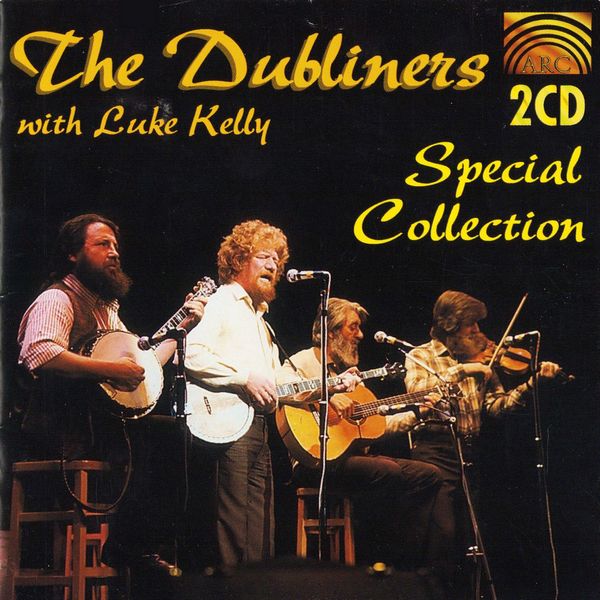 |
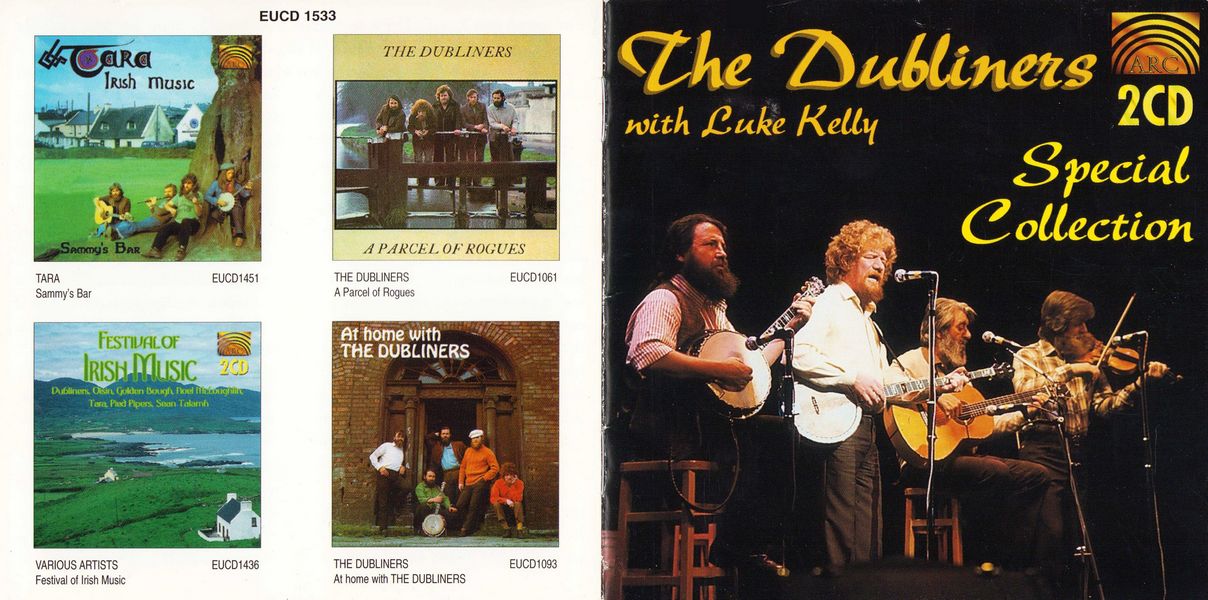
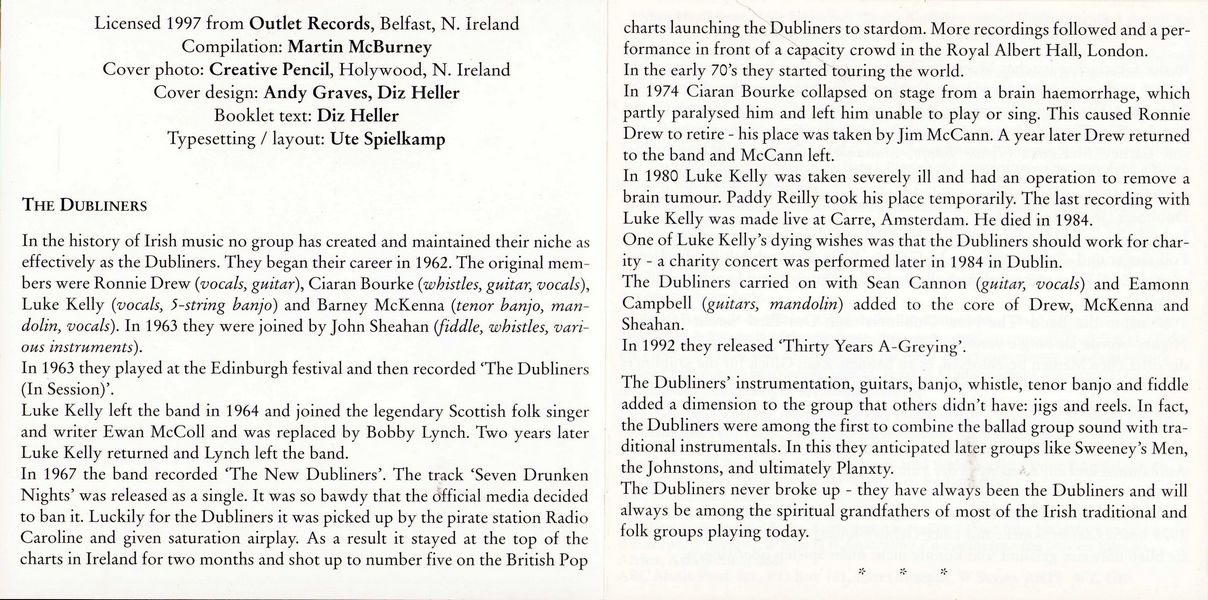 |
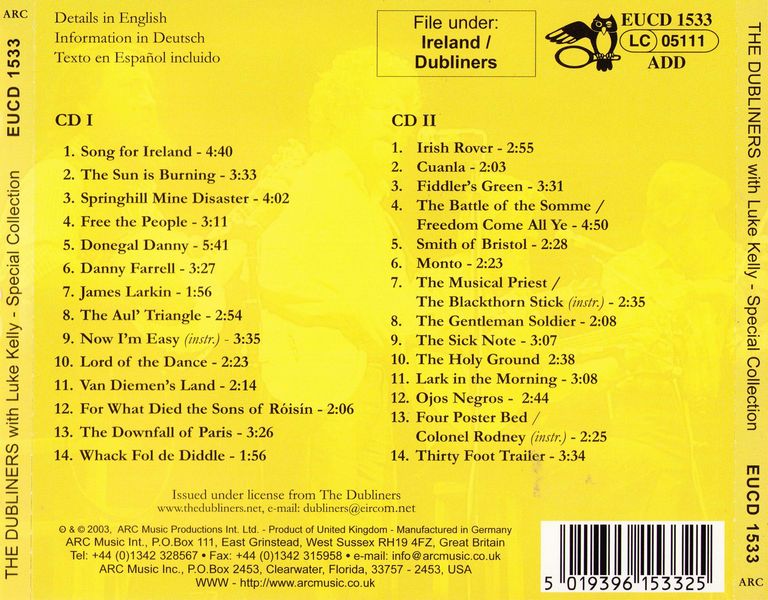
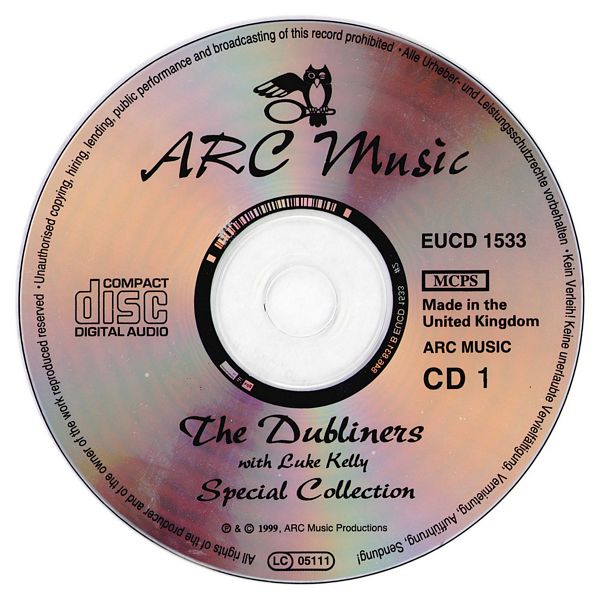
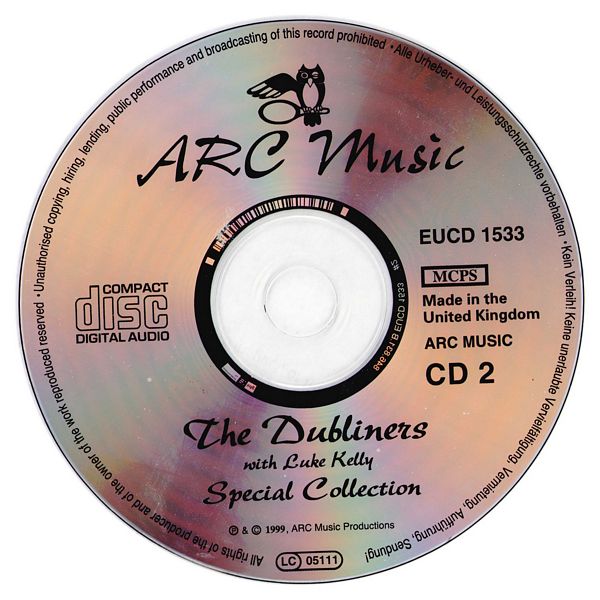
|
Sleeve Notes
In the history of Irish music no group has created and maintained their niche as effectively as the Dubliners. They began their career in 1962. The original members were Ronnie Drew (vocals, guitar), Ciaran Bourke (whistles, guitar, vocals), Luke Kelly (vocals, 5-string banjo) and Barney McKenna (tenor banjo, mandolin, vocals). In 1963 they were joined by John Sheahan (fiddle, whistles, various instruments).
In 1963 they played at the Edinburgh festival and then recorded 'The Dubliners (In Session)'.
Luke Kelly left the band in 1964 and joined the legendary Scottish folk singer and writer Ewan McColl and was replaced by Bobby Lynch. Two years later Luke Kelly returned and Lynch left the band.
In 1967 the band recorded 'The New Dubliners'. The track 'Seven Drunken Nights' was released as a single. It was so bawdy that the official media decided to ban it. Luckily for the Dubliners it was picked up by the pirate station Radio Caroline and given saturation airplay. As a result it stayed at the top of the charts in Ireland for two months and shot up to number five on the British Pop charts launching the Dubliners to stardom. More recordings followed and a performance in front of a capacity crowd in the Royal Albert Hall, London.
In the early 70s they started touring the world.
In 1974 Ciaran Bourke collapsed on stage from a brain haemorrhage, which partly paralysed him and left him unable to play or sing. This caused Ronnie Drew to retire — his place was taken by Jim McCann. A year later Drew returned to the band and McCann left.
In 1980 Luke Kelly was taken severely ill and had an operation to remove a brain tumour. Paddy Reilly took his place temporarily. The last recording with Luke Kelly was made live at Carre, Amsterdam. He died in 1984.
One of Luke Kelly's dying wishes was that the Dubliners should work for charity — a charity concert was performed later in 1984 in Dublin.
The Dubliners carried on with Sean Cannon (guitar, vocals) and Eamonn Campbell (guitars, mandolin) added to the core of Drew, McKenna and Sheahan.
In 1992 they released 'Thirty Years A-Greying'.
The Dubliners' instrumentation, guitars, banjo, whistle, tenor banjo and fiddle added a dimension to the group that others didn't have: jigs and reels. In fact, the Dubliners were among the first to combine the ballad group sound with traditional instrumentals. In this they anticipated later groups like Sweeney's Men, the Johnstons, and ultimately Planxty.
The Dubliners never broke up — they have always been the Dubliners and will always be among the spiritual grandfathers of most of the Irish traditional and folk groups playing today.